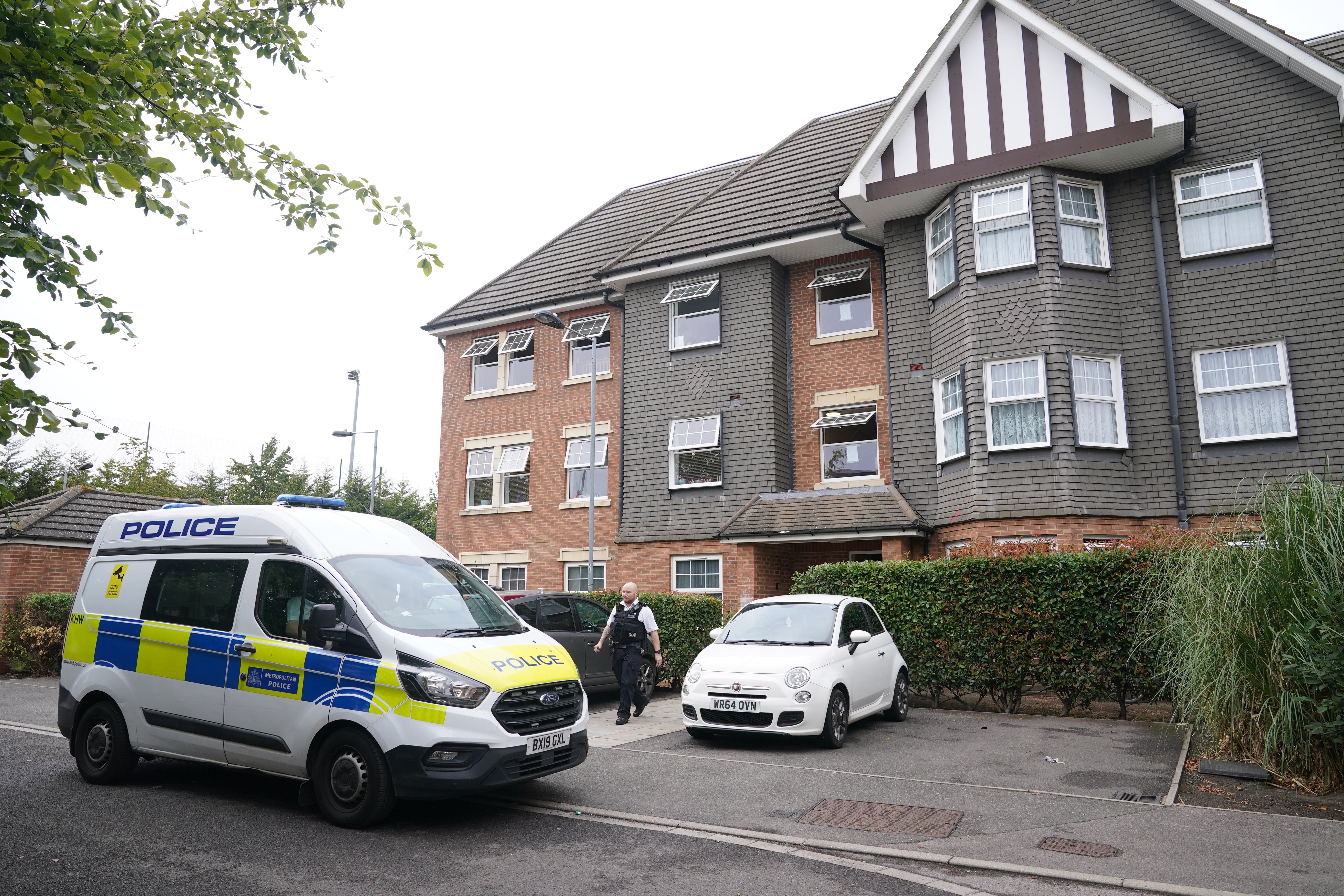Woman stabbed her dinner lady mother to death after enduring childhood abuse
Aziza Bennis was heard pleading ‘I’m sorry, I’m sorry’ as she was knifed over 30 times

A young woman who stabbed her alcoholic and abusive mother to death as she pleaded “please stop hurting me” has been jailed.
Hanaa Bennis, 22, knifed former dinner lady Aziza Bennis, 58, more than 30 times at her home in west London on 15 August 2022 after the two had exchanged a number of fiery messages.
Police were called to the address in Ealing after neighbours reported the sounds of screaming and objects being thrown, with Ms Bennis heard begging: “I’m sorry, I’m sorry.”
Upon forcing entry to the flat, officers discovered the victim in the living room in a foetal position with fatal injuries. Blood was on the walls and a bloody knife was found on the coffee table, while the defendant had a deep cut above her left eye and a puncture wound to her right thigh.
Bennis was arrested and taken to hospital, where she became violent and had to be restrained. It later emerged that she had used her mobile phone to film parts of the attack, which showed her mother covered in blood.

Later, a post-mortem examination found her mother had suffered stab wounds to the head, face and arms, with the fatal wound to the right thigh.
The court heard that Bennis had been suffering from the effects of “childhood trauma” after enduring a “shocking” history of abuse at the hands of her mother.
The defendant described her childhood as “hell” which had involved beatings with sandals and belt buckles, black magic, threats to kill a pet hamster and being assaulted with chilli powder.
She had been on a child protection register then “bounced around” emergency residential accommodation, homelessness, living in care and later with her grandmother.
Having become pregnant at 18, she enrolled on an Open University course in 2021 but in February 2022 had a “meltdown” due to “unresolved issues from her past”, the court was told.
Earlier that day, the two had exchanged a series of text messages, with the defendant saying: “You made me hate my life. U genuinely make me not want to live…”
Her mother replied: “Get a life Hanaa”, to which the defendant responded: “Burn in hell you sour bitch.”
In a police interview, Bennis gave a history of depression and self-harm.
In a prepared statement, she said: “My mother attacked me with a knife. I sustained multiple injuries on my body from my mother’s actions. I acted in self-defence.”
Prosecutor Edward Brown KC said the defendant was “disruptive”, “rebellious”, “drank to excess” and “often went missing” – but added her behaviour was “in large part the result of the abuse by her mother”.
Bennis had denied murder but pleaded guilty to the lesser offence of manslaughter by reason of diminished responsibility. She has been jailed for nine years with an additional five years on extended licence.
On psychiatric reports, Judge Lickley said: “Both doctors agree there are a number of features I have got to consider but the overriding one is complex PTSD (post-traumatic stress disorder) as a result of childhood trauma.”
Her defence lawyer Jeremy Dein KC asserted: “There was an explosion of violence by Ms Bennis which was in effect a release of her frustration and trauma at what she had been subjected to throughout her life.”
Judge Lickley said: “You killed your mother in her own home. The ferocity of the attack proves your intent to kill.”
He said Bennis’s complex PTSD (post-traumatic stress disorder) was a “significant” contributor to the killing but this alone did not explain her behaviour.
He told her: “You and your sister had a very troubled relationship with your mother from a young age.
“Physical and verbal abuse were features of your upbringing. The evidence demonstrates she was violent towards you.”
As Bennis cried in the dock, he continued: “You made a very poor choice to visit your mother that day.
“You knew there was a significant history between you and your mother. You knew your mother’s personality. You had been drinking.”
The court was told Bennis had written a letter which expressed “remorse”, a “fierce determination to rehabilitate” and a desire to work helping addicts following her release.
